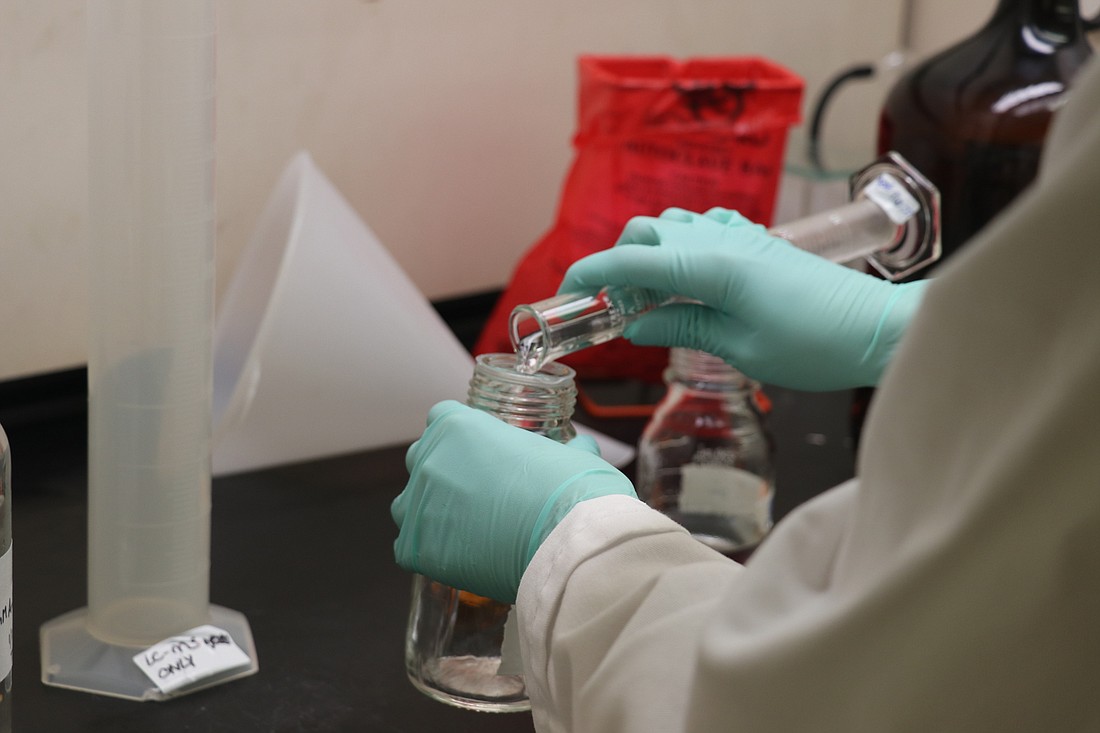- January 15, 2025
-
-
Loading

Loading

A Sarasota nonprofit has worked for the past two years to determine what kind of impact red tide has had on human health.
Roskamp Institute executive director Dr. Michael Mullan explained what he’s learned so far overseeing the Red Tide Project along with Dr. Laila Abdullah.
“There can be big differences in the way people respond to red tide,” Mullan said. “Not everybody responds the same. Some people don’t seem to have much effect from it at all, and others seem to get quite severe effects.”
More than 250 people have participated in the study since its launch in June 2019, according to Mullan. He said researchers examine data from volunteers’ blood and urine samples.

“We’re trying to understand (the effects) based on what we’re seeing in the blood,” Mullan said. “So, one of the interesting things that we’re seeing in the blood is antibody levels to the toxin, which means that the toxin has somehow gotten into the body and the body has responded by generating antibodies.”
Longboat Key Planning and Zoning Board member Gary Coffin said he’s seen the area deal with red tide issues since moving to the island in 2002. Coffin’s allergies and wanting to contribute toward finding solutions to red tide motivated him to join the study.
“Every other year or so there’s an episode of this, and it’s really annoying,” Coffin said. “Being a person with allergies already, (the red tide) certainly didn’t help me at all.
“So I figured, well, I’ll just go down and volunteer and see what we can do (and) offer to help.”
This year marked Coffin’s second time participating in the study. He said the process takes about 15 minutes for researchers to collect samples.
“This is the first time I’ve had to go back because we’ve had no episodes here of it,” Coffin said.
READ MORE: The life cycle of red tide
The Roskamp Institute is a biomedical research organization focusing on neurological illnesses such as Alzheimer’s disease and post-traumatic stress disorder.
Researchers are still working to understand what it means that red tide aerosols seem to trigger an antibody response.
“Even when people haven’t been anywhere near a red tide for months, some of them still have very high levels of antibody in their blood, and others have low level,” he said.
Mullan said if people do have a negative reaction, doctors want to learn whether it’s related to red tide or something else.
“For instance, is it a secondary effect of their respiratory problems?” Mullan said. “That’s one of the things that’s come up is, are the people that do have neurological problems is it just a consequence of the respiratory problems they have, or is there a group that have separate neurological problems that don’t have anything to do with preexisting asthma or other conditions?”
Mullan said several questions have emerged from the study that haven’t been answered:
“I think the very interesting point here is that there are a lot of potential public health questions that simply need to be answered,” Mullan said.
The first part of the Roskamp Institute’s project will finish next year. Mullan hopes to extend the study to see if there any long-term effects of repeated exposure. He hopes to have publicly available data in the next six to months after receiving a peer review.
Roskamp Institute is looking for people who live inland to participate in the study. Researchers break volunteers into three groups: